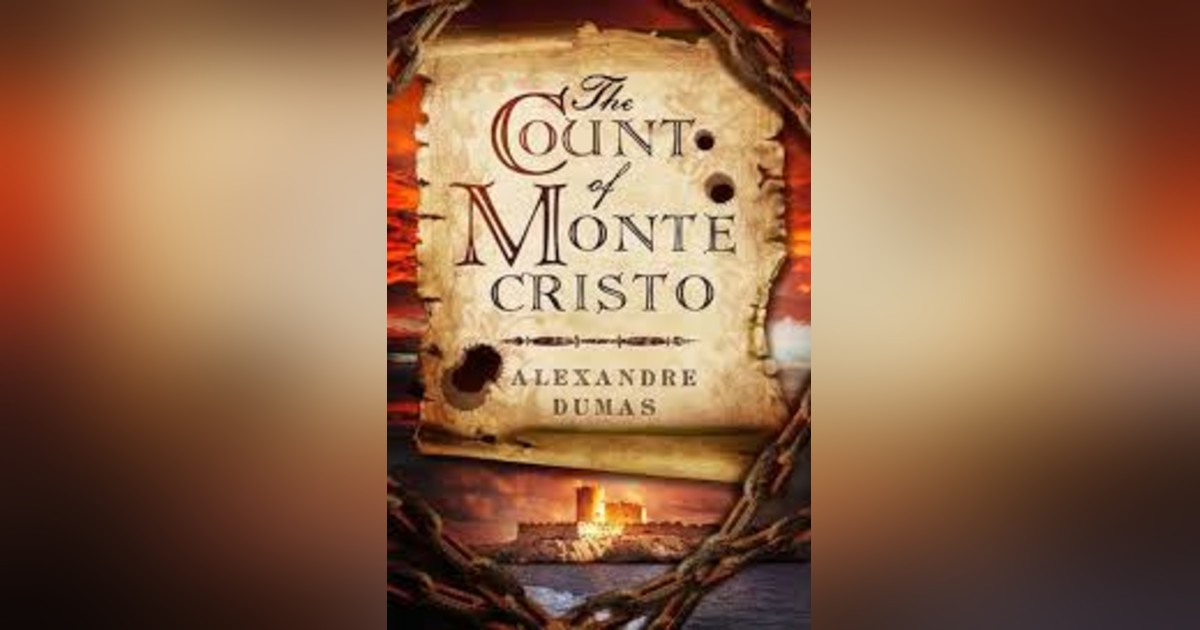THE COUNT OF MONTE CRISTO (CHAPS 71-73) BREAD & SALT, MDME ST. MERAN, AND THE PROMISE

CHAP 71
The Count and Mercedes walk outside together and into a greenhouse on the Morcerf property. There Mercedes asks the Count if he’s suffered many “sorrows,” and to this the Count assents, saying that he once loved a woman in Malta, that he went away to war and, when he returned, she was married to another—but that this is a “common story.” Mercedes seems affected by this answer, but she says little. She also begs the Count to eat with her, some grapes from the greenhouse or other fruits, but he says no, that he cannot. Nevertheless, he says, they are and will remain friends.
Here, Mercedes really does put into practice her avowed test, and indeed the Count claims there is nothing he can do about it—he cannot eat in front of her—but he wishes that they remain civil to one another. In a strange double twist of dramatic irony, the reader intuits that both Mercedes and the Count know each others’ true identities, but neither is willing to speak this truth aloud in the context of the ball, thus adding to the tension of the conversation.
CHAP 72 MDME DE VILLAFORT
Villefort is at home when his family returns from the ball with the news that his former father in law, M. de Saint-Meran, has died of a stroke after taking his “normally prescribed” pills while en route to Paris with his wife. The couple had come to visit the Villeforts to bring about the marriage of Franz and Valentine, and Valentine, as ever, is as reluctant to carry out the wedding as Villefort is determined to make it final.
The reader might remember Mme de Villefort’s demonstrated interest in poisons, which she discussed with the Count many chapters earlier. The death here is also reminiscent of Noirtier’s stroke, which occurred many years previously under mysterious circumstances.
CHAP 73 THE ROMANCE
When the lovers speak, Valentine relays that, though there is nothing she can do to help it, she will be forced to sign a marriage contract with Franz as soon as he enters Paris, since it is the wish of her grandmother. Maximilien replies that Franz has just that day arrived in Paris, and so the contract will be signed as quickly as possible, then. He asks that Valentine elope with him, but she says she cannot go against her father’s and grandmother’s wishes; that she must do as the family demands. At this, Maximilien says that the only honorable course for him is to commit suicide.
Valentine loves Maximilien, but her loyalty to her father and family’s wishes are also deeply important to her. In other words, she is being made to choose between these different devotions, and she is not sure to whom she should accord her utmost loyalty. It is striking that, as a response, Maximilien says exactly what his father said, many years ago – that, in order to avoid dishonor, he must take his own life.
Active Themes
Justice, Revenge, and God’s Will Theme Icon Love, Devotion, and Redemption Theme Icon Debt and Gratitude Theme Icon
At this, however, Valentine says that she will in fact elope with Maximilien—that she cannot be responsible for his death, and that she is struck by his honor. She plans to meet with him at 9 pm the next night, by the garden wall, and he will escort her away in a carriage where they can be wed outside Paris. They part without even a kiss, and Morrel goes about the next day worrying that the plan will not in fact take place.
Just as Old Morrel did not commit suicide and was saved from ruin, Maximilien is saved, too, this time by Valentine’s kindness. Valentine believes that, though it will be terrible to disobey her father, it would be worse to force Maximilien to kill himself (although one might also argue that he is emotionally blackmailing her with his threat of suicide).
Active Themes




